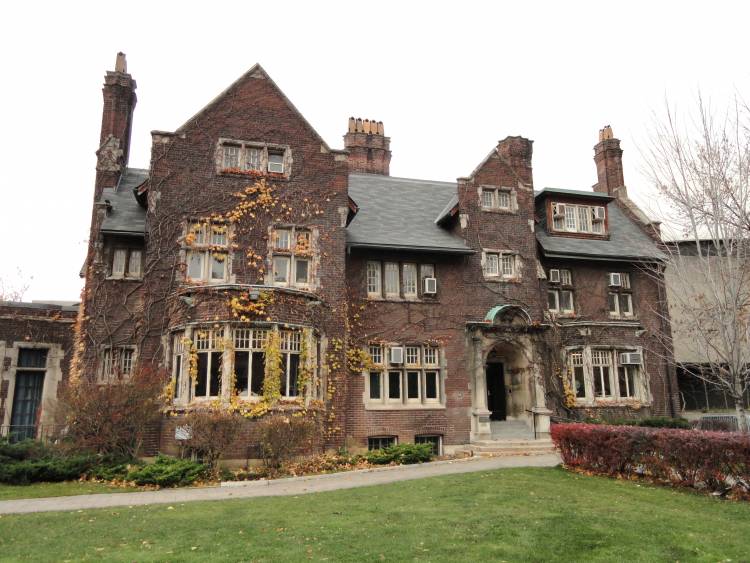For many potential students looking for master’s programs in law, the LL.M. stands out as the degree to get.
But what about for those who don’t have a background in law? That’s where degrees like the Juris Master (JM) come in.

“The LL.M. is the degree designed for people who already hold a first degree in law,” explains Lynn Labuda, Director for Graduate Programs at Emory University School of Law. “The Juris Master program is designed for people who are not lawyers, who do not hold that first law degree. So they're generally working professionals who want to enhance their knowledge of the law as it relates to what they do.”
Indeed, many LL.M. students have generally graduated with a Juris Doctor (JD), and may have even sat a bar exam, and are therefore able to practice law.
“But our JM students are not able to sit for a bar exam. They can't practice the law. They can't give legal advice. But what they do is they enhance their knowledge of the law.”
LL.M. Basics: Types of Law Degrees
In addition to JM programs, some law schools also offer Master of Studies in Law (MSL) or Master of Legal Studies (MLS) programs, which are also designed for non-law professionals looking to skill up in law.
This fall Pepperdine University School of Law is welcoming the inaugural class of the online Master of Legal Studies (MLS) program.
“Our program is aimed at people who are interested in knowing more about the law but aren’t necessarily interested in becoming lawyers themselves,” says Jim Gash, Associate Dean at Pepperdine School of Law.
Gash says while most students are expecting to return to their own sectors following graduation, the 16-month program can serve as a way for students to find out whether further study of the law may interest them.
He says the MLS program answers questions like “‘What is a tort? What are the aspects of a contract?’ As opposed to, ‘How do I write contracts? How do I litigate contracts?’”
“So the program offers a higher level of generality.”
Like LL.M.s, JMs and other programs aimed at non-law graduates are sometimes offered with concentrations, where students can delve into a specific area of law.
Emory Law, for example, offers a number of concentrations, ranging from business law to real estate law, media law and human rights law.
“I would say our most popular concentrations on the JM side are health and the health care industry. Also employment law – we get a lot of human resource directors and people in human resources that want to enhance their knowledge about employment law, labor law, disability law, discrimination, immigration, veteran's benefits etc.” says Labuda.
Pursuing an LL.M. Without a Background in Law
Indeed, for many human resources professionals, having a solid understanding of employment laws and other legal topics can go a long way.
Labuda says human resources leaders need to be “someone who has that hands-on, professional experience, the HR certifications and education, but also the legal education that supports human resources”.
She says she has seen Juris Masters programs become increasingly popular. “These non-JD masters programs such as Juris Masters have definitely grown over the past five years,” she says.
Many US law schools are broadening their nets by offering Juris Masters programs to cater to non-law grads who have an interest in legal studies.
Aside from Emory Law, law programs for non-lawyers have also opened up at Florida State University, UC Hastings, Drexel University, Appalachian State University in North Carolina, and even at Yale University, where the Master of Legal Studies program caters to these kinds of students.
Additionally, Washington University in St. Louis (WUSTL) also offers an MLS program, both in-class and online.
Private Christian institution Liberty University, located in Lynchburg, Virginia, offers a Juris Master program online, allowing working professionals to add legal credentials to their portfolios without having to compromise work commitments.
Yuri Mantilla, Associate Professor of Law at Liberty University School of Law says their Juris Master program attracts “students from diverse backgrounds including industry, government, law firm administrators, Christian ministries, members of the military, recent graduates from the fields of political science, business, journalism, and paralegal studies, among others.”
Liberty Law’s Juris Master degree is a relatively new program; the first class graduated in May this year. Students have the choice between two programs of study: American Legal Studies or International Legal Studies.
A master of laws program for non-law graduates in Toronto
It's not just law schools in the US that offer JMs and other master's-level programs aimed at non-law graduates. For example, law schools in the UK might offer MSc or MA degrees in law-related areas like regulation, dispute resolution, or the healthcare field, for example.

In Canada, the University of Toronto Faculty of Law is home to two such programs, with the Master of Studies in Law (MSL) program catering specifically to academics from other fields.
“The kind of student that the program tends to attract is normally people who have been doing academic research that involves law but they do not have formal legal training,” explains Mariana Mota Prado, Associate Dean of Graduate Programs at the University of Toronto Faculty of Law.
“We often get professors, sometimes tenured professors, from other departments – sociology, criminology, anthropology – whose primary subject of study is the law. They come here and spend an entire year taking not only courses from the first year curriculum, but also engaging with people who do research in law.”
Alongside the MSL, the school also runs a program called the Global Professional Master of Laws (or GPLLM for short).
“This is a masters that's targeted at professionals and it does not require someone to have a law degree in order to attend the program and pursue this degree,” says Mota Prado.
The GPLLM began with a Business Law concentration. From September 2017 two additional concentrations will be available, in Canadian Law in a Global Context, and Innovation Law and Technology.
In September 2018, the school plans to add a fourth concentration to the GPLLM, which will combine legal understanding with leadership skills.
Images:
- Matheson Reading Room at Emory University in Atlanta, GA by Mpspqr CC BY 2.0 (cropped)
- Falconer Hall at the University of Toronto School of Law by Daderot CC BY 2.0













